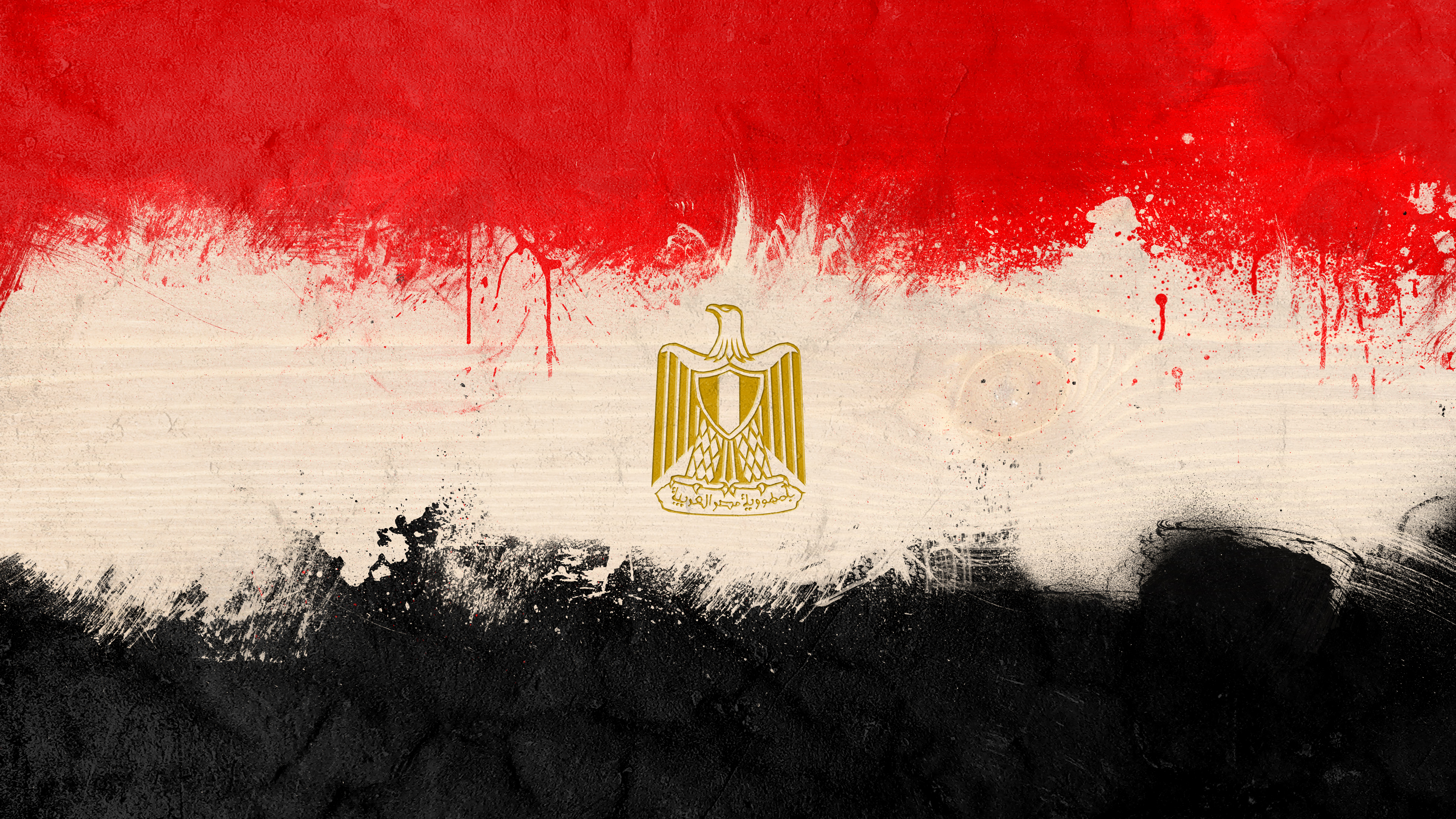Religious Figures Must Avoid Partisanship and Sectarianism

Tags: USA
Religious Figures Must Avoid Partisanship and Sectarianism published by Evanvinh
Writer Rating: 5.0000
Posted on 2016-03-19
Writer Description: Evanvinh
This writer has written 733 articles.
"The cynical use of religion to justify calculated political strategies is in fact disturbingly evident on both sides."
Asma Afsaruddin is an author and professor of Islamic studies at Indiana University in Bloomington. In the following viewpoint, she criticizes the cynical use of religion on both sides of the conflict in Egyptian politics. On one side, the military and its leader General Abdel Fattah al-Sisi were quick to justify the crackdown on the Muslim Brotherhood by associating some of the conservative Islamist beliefs of the group with terrorism; on the other side, the Muslim Brotherhood called for a revolt against the military regime and the establishment of a conservative Islamist state. In particular, the eagerness of prominent Muslim figures to take sides is troubling; as Afsaruddin points out, Muslim scholars have historically distanced themselves from partisan battles and have emphasized the importance of good governance above religious fanaticism. Afsaruddin argues that in order to build a just society based on the rule of law and good governance for all, religious figures must adhere to that traditional principle and abstain from destructive and divisive partisanship and sectarianism.
A Turbulent Situation in Egypt
The July [2013] military coup (for that is what it was) in Egypt has become one of the bloodiest military takeovers in recent history. Hundreds of civilians have been slain and thousands injured since the government led by [Mohamed] Morsi was overthrown by his former defense minister General [Abdel] Fattah al-Sisi.
Not too long ago, Morsi was elected to the presidency riding on the crest of popular support, reflecting massive relief on the part of the Egyptian people at [Hosni] Mubarak's ouster. The people had spoken loudly and clearly. But then things began to go awry—Morsi began to overreach and adopt unpopular legal measures without proper judicial oversight. The economy began to decline, attacks on Christian minorities increased and accusations of religious authoritarianism and corruption began to surface.
Once again large crowds of Egyptians, said to number in the millions, took to the streets—this time to register their disapproval of Morsi's government. The military claimed to derive a popular mandate from these massivedemonstrations and moved in to overthrow the Morsi government, imprison the deposed president, and launch a murderous vendetta against members of the Muslim Brotherhood.
One might be justified in asking—are there any good guys left in this scenario? Even the Egyptian people who had won the world's admiration when they heroically rose up against the Mubarak government and enthusiastically participated in democratic elections now appears to have tarnished their image by rising up against the first democratically elected government in their history.
This has paved the way for violent military intervention in the political affairs of the country and resurrected old stereotypes about "Arab despotism."
The Reaction from Religious Figures
The religious and moral rhetoric that has been deployed on all sides is equally confusing. Ali Jum'a, the chief jurisconsult (Grand Mufti) in Egypt and Ahmad al-Tayyib, the rector of Al-Azhar University, both appointed by former president Hosni Mubarak, have supported the military coup. In a legal opinion (fatwa) that has been widely disseminated on the Internet, Jum'a in particular has energetically endorsed the overthrow of Morsi and supported the bloody aftermath of the military takeover (a position he subsequently denied having taken on his official website). The governments of conservative Muslim countries, such as Saudi Arabia and the Persian Gulf countries, have supported the coup as well, anxious as they are about the democratic "contagion" spreading to their realms. The Gulf countries' embrace of the avowedly secular Egyptian military and the Azhar elite's support of the military coup unhinges the usual assumptions about religious and secular alliances in the Arab world.
Morsi's supporters largely drawn from the Muslim Brotherhood have also resorted to religious rhetoric to attempt to galvanize popular opposition to the military. They regard their political resistance as a justified jihad against the usurpation of power by the military in defiance of the democratic elections held in July 2012. Essam El-Erian, a prominent member of the Muslim Brotherhood, declared in the immediate aftermath of the coup that "we will continue the fight, jihad and struggle in a peaceful protest."
Where then should the moral and ethical lines be drawn, if at all? Can both sides be right or wrong at the same time?
It is clear that political allegiances are driving the current situation in Egypt, even though such allegiances are frequently cloaked in highly emotive religious idiom. Despite the charged religious rhetoric on both sides, at the end of the day, the principal actors in this unfolding tragedy are motivated mostly by political power.
Many of us who study Islamic thought have been taken aback by the eagerness with which specific religious scholars have taken sides in the current overheated political climate in Egypt. Traditionally, Muslim scholars tended to stay aloof from politics, leery of accepting government employment. Religious scholars in the medieval period usually derived their income from privately funded charitable endowments beyond the reach of the government. Consequently, they had the moral freedom to criticize the government. The situation changed dramatically during the period of European colonization and in the post-colonial period when these charitable endowments were dissolved and handpicked religious scholars were placed on the government payroll. This effectively turned them into spokespersons for the government; the stature of religious scholars as independent moral arbiters has never been the same.
Despite what some Washington pundits, like David Brooks, have remarked, the question to be posed now is not whether Egypt is ready for democracy or not—that ship has sailed. The relevant question is: Are Egyptians ready to uphold the rule of law regardless of the political consequences?
Establishing a Just Society
The creation of just, ordered societies is in fact the primary objective of the Muslim political tradition—and Muslim scholars often took it upon themselves to promote this, sometimes even overriding religious considerations. The historian Ibn al-Tiqtaqa relates that when the Mongols had taken possession of Baghdad in the thirteenth century, their ruler Hulagu Khan is said to have assembled the religious scholars in the city and posed a loaded question to them: According to their law, which alternative is preferable—the disbelieving ruler who is just or the Muslim ruler who is unjust? After moments of anguished reflection, one well-known scholar took the lead by signing his name to the response, "the disbelieving ruler who is just." Others are said to have followed suit in endorsing this answer.
Was this a politically expedient response? Perhaps. But there is no denying that this scholarly position highlights the importance of justice as the hallmark of a well-ordered polity in Islamic political thought, regardless of the religious affiliation or attitudes of the ruler. Morsi and his supporters should not have assumed that by simply proclaiming their Islamic credentials they could paper over their ineffective policies and judicial high-handedness and continue to rally the majority of Egyptians to their side. Rhetoric does not substitute for actual accomplishments on the ground.
Religion as a Weapon
The cynical use of religion to justify calculated political strategies is in fact disturbingly evident on both sides. Al-Sisi and his allies have declared Morsi's supporters to be "terrorists" guilty of inciting violence against the government, drawing a ready equation between Islamism and terrorism. Emboldened by the top religious leaders' support for the coup as protecting the larger common good, the military government continues its campaign to hunt down and slay their opponents with impunity. The subsequent human toll to date has been described byHuman Rights Watch as "the most serious incident of mass unlawful killings in modern Egyptian history."
Certain members of the Muslim Brotherhood on the other hand claim to be carrying out a "jihad" against the military government and have been willing to register their moral outrage by risking death at the hands of the army.
Well-established Islamic political thought and history would prove both sides to be abusing Islamic legal terminology. From the viewpoint of classical scholarship, Muslims do not wage jihad against one another; the military form of it was reserved for external aggressors only.
As for the broader understanding of jihad as a moral and social struggle, such an endeavor must not lead to loss of innocent civilian lives or foment "social dissension"—fitna in Arabic—condemned in Islamic ethical literature as morally reprehensible. On this latter point, Jum'a in his support for the coup as an expression of majority popular will may appear to be right. But it should be noted at the same time that classical jurists and political theorists like [Abu al-Hasan] al-Mawardi (d. 1058) also recognized the validity of political rebellion.
Nowhere in the political literature is the ruler granted the right to annihilate his political opponents because he disagrees with their position.
A Place for Dissent
Unless these rebels have resorted to proven violent acts of brigandage and sedition—which would place them in a different category of miscreants—they are not to be put to death. Instead they are entitled to a fair hearing before jurists—they cannot be indicted simply through the legal pronouncements of recognized religious scholars or in the "court" of public opinion. Despite the attempts of conservative scholars to idealize political quietism and conformity—sometimes at the expense of justice and fair political representation—there has always been a place within Islamic political and intellectual history for reasoned dissent. As Muhammad is reported to have said: "In difference there is mercy for my community."
The freewheeling misuse of religion on both sides is a dismal augury of continued social and political chaos in Egypt. Time and time again, revolutionaries have eventually learned that without the rule of law and principled adherence to justice, the popular will does not translate into a moral mandate for positive social and political change. Religion can be an important ally in this process but only if it does not degenerate into a handmaiden to the pursuit of rank political power.
Gale Document Number: GALE|EJ3010947223
Sources: http://ic.galegroup.com.db24.linccweb.org/ic/ovic/ViewpointsDetailsPage/ViewpointsDetailsWindow?failOverType=&query=&prodId=OVIC&windowstate=normal&contentModules=&display-query=&a
You have the right to stay anonymous in your comments, share at your own discretion.


